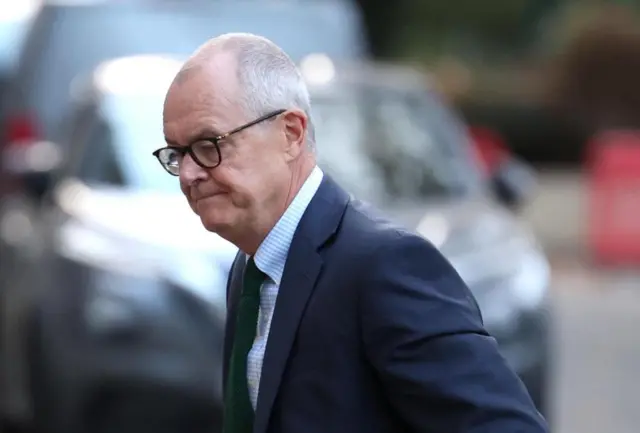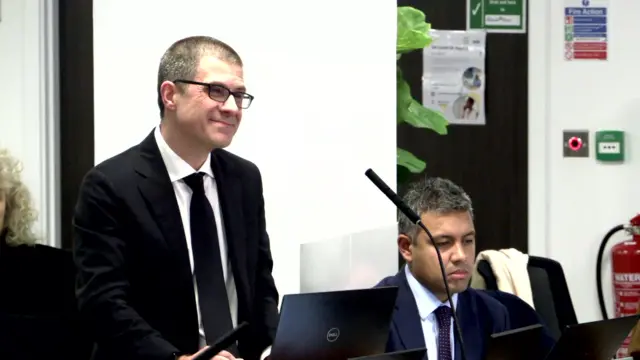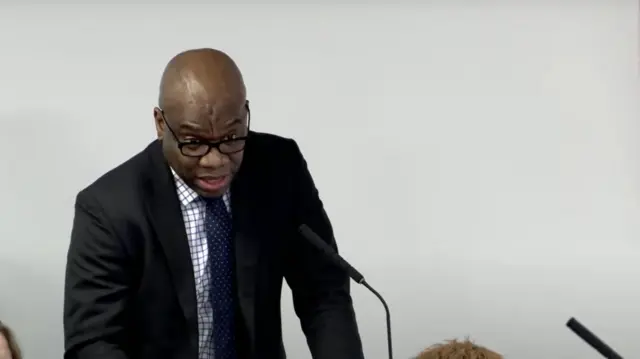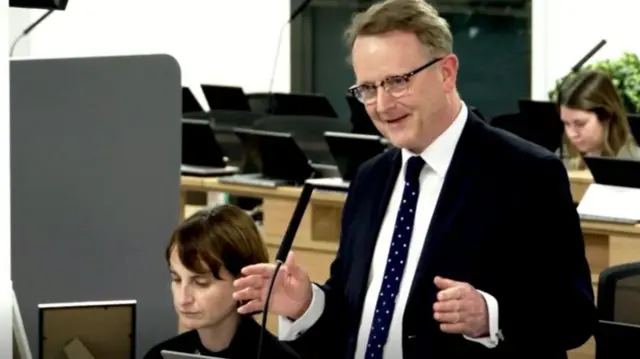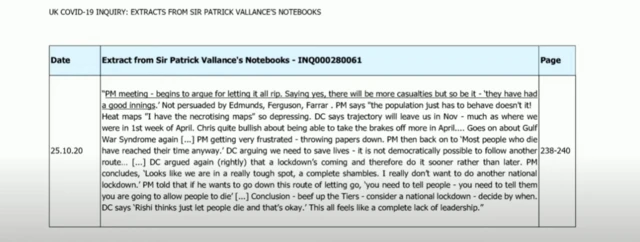Join us again tomorrow as Prof Sir Chris Whitty gives evidencepublished at 17:55 GMT 20 November 2023
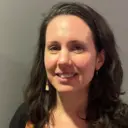 Nadia Ragozhina
Nadia Ragozhina
Live reporter
Thanks for being with us as we brought you the Covid inquiry proceedings and the testimony of Sir Patrick Vallance, the government's former chief scientific adviser.
One of the things the inquiry heard today was about the differing views of Sir Patrick Vallance and chief medical officer Professor Sir Chris Whitty in the early stages of the pandemic. Vallance said the lockdowns should have come in earlier.
Tomorrow, Tuesday 21 November, Whitty will take the witness stand, and we will get to hear what he thought of the timing of lockdown and more. So join us again.

